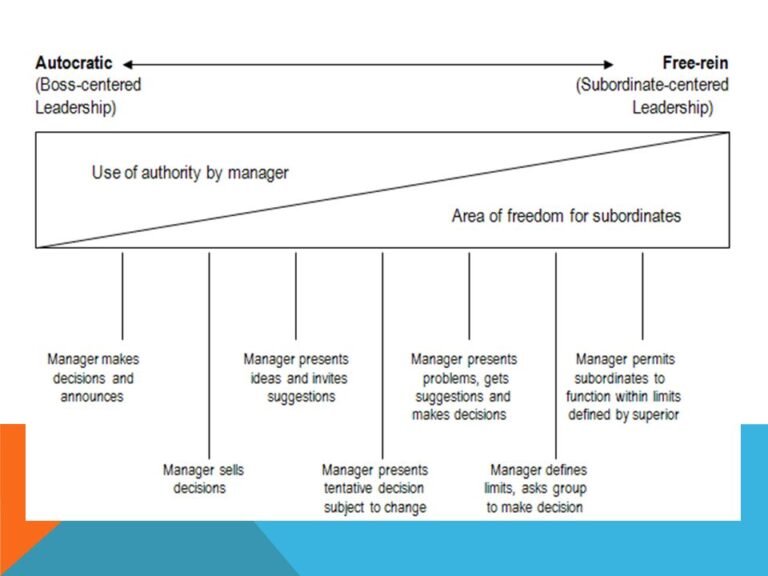Financial Institutions; Depository Institutions & Non-Depository Institutions
Financial Institutions
What are Financial Institutions?
The phrase “financial institutions” refers to the entities that offer financial services such as banking, insurance, and financing. Financial institutions help people manage their money in a variety of ways.
Financial institutions have been around for a long time. The first bank was founded in Italy in the 13th century. At that time, it served as an intermediary to transfer funds from one account holder to another through a banking system of correspondents who would travel between cities and towns where they would exchange cash with other bankers before depositing cash at the home office.
Today, financial institutions have a large impact on the world. They are the backbone of the financial system. They provide essential services to people and businesses such as banking, managing investments, and lending services to individuals, businesses, governments, and other organizations.
Financial institutions are also responsible for providing a safe place for people to store their savings. Financial institutions offer various products, including checking accounts, savings accounts, mortgages, car loans, business loans, etc.
They are, therefore, essential to the global economy, and they are one of the most important drivers of economic growth and development around the world.
Types of Financial Institutions.
There are two broad categories.
- Depository Financial Institutions
- Non-Depository Financial Institutions
Depository Financial Institutions
A depository financial institution is a company that participates in the economy by lending money, accepting deposits, and making investments. The depository financial institution may either be a commercial bank, savings, and loan company, credit union, or thrift institution.
In order to differentiate between specific types of institutions, they are classified into two categories: commercial banks and other depository institutions.
A depository institution accepts deposits meaning that you can go into one of these entities, and you can choose to give your money, and they can hold it for a while. You put your money on hold there, and then it will be available at a point in the future when you choose to reaccess it.
💥🎁 New Year & Easter Deals On Amazon !
Don't miss out on the best discounts and top-rated products available right now!
🛒 Shop Now and Save Big Today!*As an Amazon Associate, I earn from qualifying purchases.
This is kind of a conventional understanding of what a bank does broadly; it’s a depository institution.
Depository Financial Institutions (DFIs) are banks, credit unions, or other institutions that provide financial services to individuals and businesses. DFIs have a responsibility to hold the money deposited with them in trust for their customers.
Types of Depository Institutions
There are several different types of depository institutions, and some you’re going to be very familiar with
Commercial Bank
Commercial banks actually offer a full range of services like offers checking accounts, savings accounts, or maybe lending services, perhaps providing loans. These really are the characteristics that separate a commercial bank from some of the other entities.
Besides, in addition to accepting deposits, which they all do is a commercial bank is typically organized as a corporation.
A commercial bank usually has stockholders, has a board of directors, right chief executives. Commercial banks are often not always but can be publicly traded.
Examples of Commercial Banks
Think big commercial banks like Barclays, Chase Bank, Standard Chartered, and Wells Fargo are big commercial banks. They provide a wide portfolio of different services, and the benefit of a commercial bank is they do offer pretty much everything. So that’s going to give you access to a lot of different things.
They typically are nationwide, and so in terms of having access to A T. M’s and different things and access to branches, if that’s important to you, a commercial bank allows you to have access to services regardless of your geographic location.
These are for-profit entities, and so because of that, you’re typically going to see maybe getting charged for specific services that you might not be with other institutions.
Ultimately, their goal is to pursue profit, which is a guiding principle behind their decisions.
💥🎁 New Year & Easter Deals On Amazon !
Don't miss out on the best discounts and top-rated products available right now!
🛒 Shop Now and Save Big Today!*As an Amazon Associate, I earn from qualifying purchases.
Credit Unions
Another type of depository institution that functions very similar to a commercial bank is a credit union. Credit unions are very popular there, typically smaller relative to commercial banks, and usually serving consumers within a specific geographic area might be within a city.
It could be within a county and could be within a region, but they typically a little bit smaller, and Sometimes they serve people based upon occupation.
That’s pretty common, and a credit union does many of the same things that a commercial bank does.
Though, the difference is that typically credit unions are member or user-owned, which means that credit unions aren’t for-profit entities. They’re actually nonprofits.
Usually, credit unions are a little more flexible regarding services typically not always but can provide better service because they’re not as concerned with profitability again.
It’s ultimately serving the members and the better interest of members, and so they can offer lower rates, which is always great to get over the credit union.
The downside is that they tend to be more conservative, and so getting a loan with a credit union, they might have a higher bar for approval, and that’s partly because they’re not as risky.
They don’t have as much access to capital as a commercial bank that can raise money from investors, so they tend to be a little more risk-averse.
You might require a higher credit score and those sorts of things. Still, if you can kind of pass those initial things and, you know, pass the credit, qualifications, and income qualifications, then usually you could benefit from lower interest rates and better terms.
Mutual Savings Banks
Some less common depository institutions include things like mutual savings banks. But a mutual savings bank is essentially depositor-owned.
💥🎁 New Year & Easter Deals On Amazon !
Don't miss out on the best discounts and top-rated products available right now!
🛒 Shop Now and Save Big Today!*As an Amazon Associate, I earn from qualifying purchases.
They are similar to a credit union somehow, but they’re not necessarily geographically very prominent.
Savings and Loan Associations
Another one is a savings and loan association, which is loan and savings alone or S &L and L for short, usually specializes in savings accounts and then making mortgages.
So, you have a savings account, people make deposits, and then what the savings and loan or the S&L does, is it then turns that into a mortgage.
Savings and loans have issues making them riskier investments.
People put their emergency funds in savings accounts because they want them to be liquid. S&Ls are now much more regulated.
It is a depository institution and has commonality between them because they all accept deposits. You can go in there and deposit money, keep it in the account, and access it later on.
You can move it between accounts and all those different things.
How they vary ultimately is how they do that, though, in the ancillary services that they offer again, with commercial banks offering the broadest portfolio and then kind of moving down. We get a little bit narrower and a little bit more special.
Non-Depository Institutions
If a depository institution accepts deposits from account holders, then a non-depository institution does not accept account holders’ deposits.
Non-deposit institutions are helpful because they usually provide other services that you might not be able to obtain through depository institutions.
💥🎁 New Year & Easter Deals On Amazon !
Don't miss out on the best discounts and top-rated products available right now!
🛒 Shop Now and Save Big Today!*As an Amazon Associate, I earn from qualifying purchases.
Insurance Companies
These include things like life insurance companies, which, as you know, a life insurance companies.
You pay a premium, and then, depending upon the term, let’s say it’s 10 years if you die then, and under the provisions of the policy, a certain amount of money is paid out upon your death and proof of that, that’s life insurance.
Investment companies
Investment companies are another example of a depository institution. These can commonly take the form of a mutual fund.
A mutual fund is an entity that will take money from many different sources, and it’s going to invest that money to pursue a particular objective.
It could invest in stocks, bonds, commodities, a combination thereof equities. They are associated with emerging markets or developed nations, or developing nations.
Brokerage Companies
You can also have brokerage companies commonly referred to simply as a brokerage firm.
A brokerage firm is a kind of people’s traditional view of investing where you hire an advisor. Then, that adviser will recommend a variety of different funds and help you buy and sell stocks.
They also help you manage your portfolio.
You often pay % in advisor fees and other fees associated with your funds,
Credit Card Companies
These are institutions that provide short-term credit. You get on an account, you have a limit, you have an interest rate, and you can spend up to a certain amount, and then you kind of paid over a period of time.
💥🎁 New Year & Easter Deals On Amazon !
Don't miss out on the best discounts and top-rated products available right now!
🛒 Shop Now and Save Big Today!*As an Amazon Associate, I earn from qualifying purchases.
And your interest is calculated based upon what your balance is at a particular time every single month, and then you have a due date. That’s basically how they function.
Credit cards are designed to be short-term financing, and often we get into issues where people can have too much credit card debt. It obviously becomes very difficult to manage.
Credit cards, by nature, are not designed to be long-term financing sources because the interest rates get up potentially by 15 to 25%.
It’s not very cheap money, but it doesn’t end up being that expensive if you need it for a short time.
Mortgage Companies
A mortgage company is an institution that primarily deals with mortgages. These are the institutions that you might contact to obtain a loan to purchase a home.
Similar to other institutions, there is a value of the process that takes place. They assess your ability to pay and your credit score and your debt to income ratio and all these different things.

And they’re going to determine how much money to lend you and what interest rate you’re going to pay and what kind of terms.
Again, not a depository institution and something that’s very helpful because economically, people purchasing homes is an excellent thing for our economy overall. Having access to this kind of capital is very helpful in encouraging homeownership.
And then, of course, all of the other spending that coincides with homeownership.
Finance Company
An institution that provides loans, and these loans can be to businesses can be to consumers. A great example of a finance company is every single major car company has a finance kind of company attached to it.
💥🎁 New Year & Easter Deals On Amazon !
Don't miss out on the best discounts and top-rated products available right now!
🛒 Shop Now and Save Big Today!*As an Amazon Associate, I earn from qualifying purchases.
For example, Ford Motor has a finance company, and that’s the company that they used to provide loans to vehicles that are buying Ford vehicles.
That’s a finance company again of the non-depository institution very similar with regards to the evaluation process that takes place but one that provides access to capital.
Summary
The difference between the depository and non-depository is whether or not they accept deposits as a condition for providing services. All depository institutions will require deposits before offering services to non-depository institutions.

